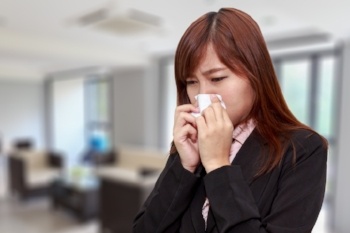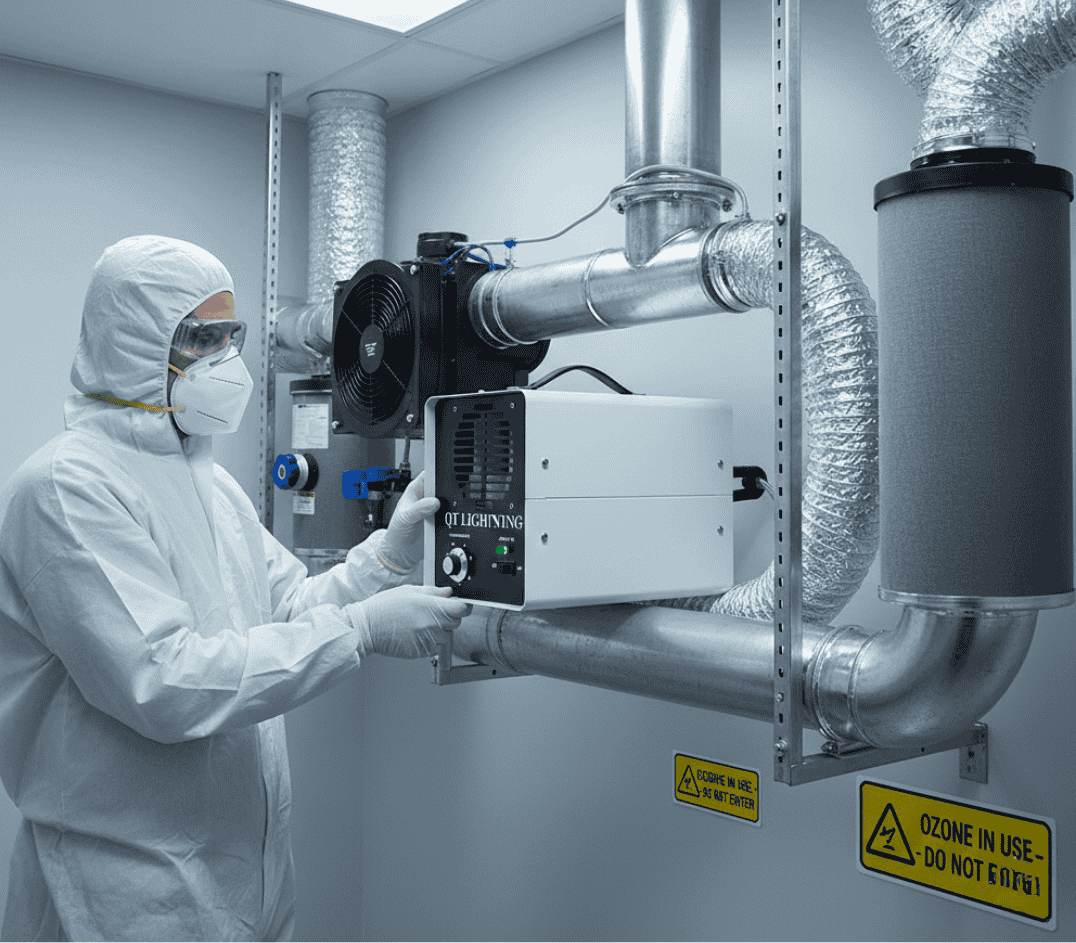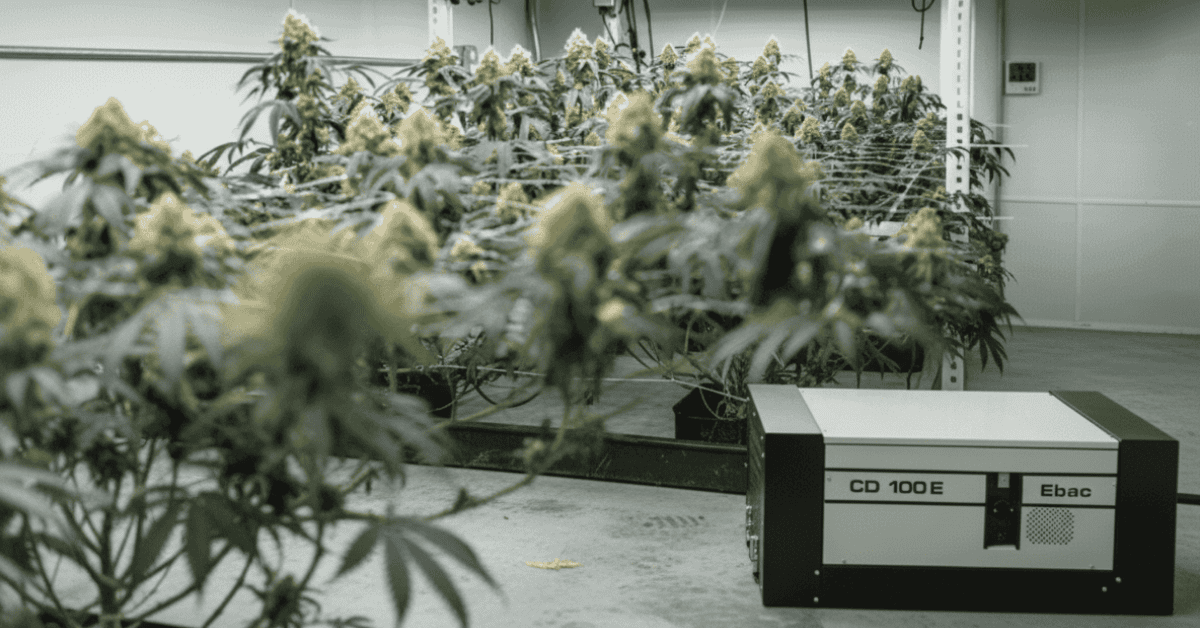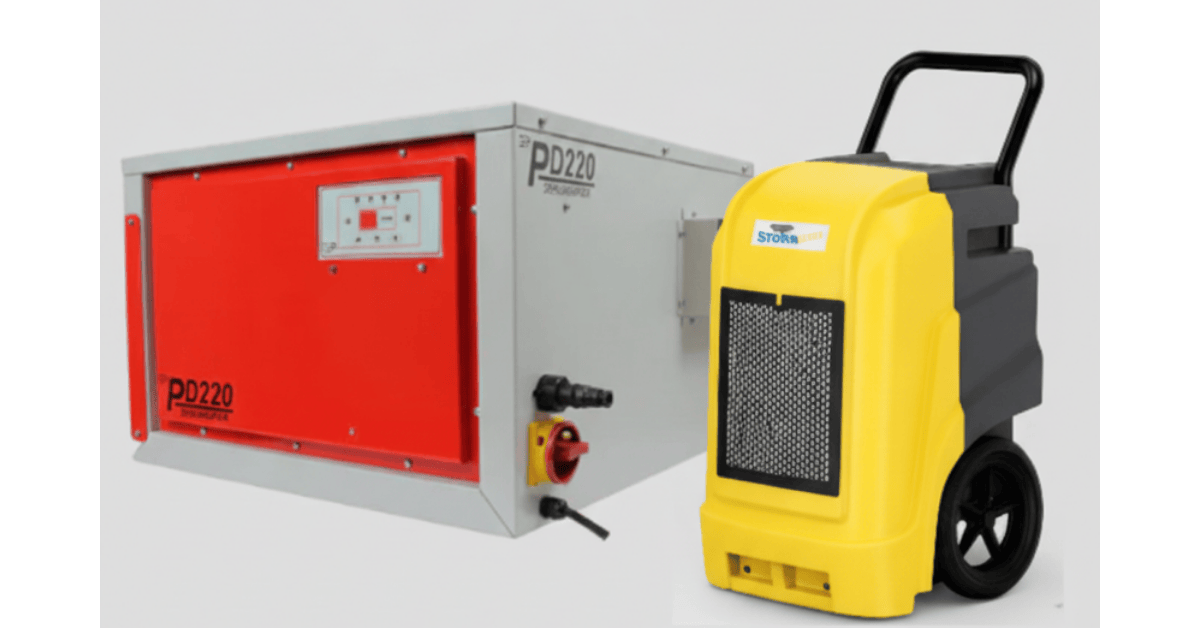 Stuffy, odorous indoor air is unpleasant, but even air that looks and smells fine may contain harmful chemicals, particles and more. Poor indoor air can affect health. According to the EPA:
Stuffy, odorous indoor air is unpleasant, but even air that looks and smells fine may contain harmful chemicals, particles and more. Poor indoor air can affect health. According to the EPA:
"Some health effects may show up shortly after a single exposure or repeated exposures to a pollutant. These include irritation of the eyes, nose, and throat, headaches, dizziness, and fatigue."
Health problems result in sick days and loss of productivity for businesses.
Bad indoor air quality can also affect a commercial enterprise by damaging property — that could include the products you manufacture, store or sell, or your building. The same threats exist for poor indoor air quality in a residential setting. No one wants to endure the long-term health effects of exposure to poor indoor air or see their belongings or home lose value.
If you've asked yourself: "What can we do to improve indoor air quality?" then follow these tips.
1) Remove the source of the problem.
The best steps to take to answer the important question "What can we do to improve indoor air quality?" will vary, depending on the source of your problem. It may sound obvious, but one of the most effective ways to address air quality issues is to remove whatever is compromising the indoor air. That could be removing mold and conditions that allow it to grow, moving an indoor smoking area outside, disposing of toxic chemicals, etc. Obviously, in some cases, completely removing the source of the air quality issue will not be possible — such as when it's a byproduct of your business. If you own a cigar lounge or run a pet grooming business or work in the field of restoration, you may need to look into a solution like a smoke eater or commercial grade air purifier.
2) Improve ventilation.
Many air quality problems — including those that stem from excess humidity — can be improved or eliminated with better ventilation. That could mean upgrading your HVAC system or installing fans. This post on levels of cigar room ventilation helps break it down — especially if your air quality issues stem from cigar, tobacco or other smoke.
3) Clean often.
Another tip that is obvious — but often overlooked — is how keeping things clean indoors contributes to a better quality of air. That means not only cleaning the floors and surfaces, but curtains, upholstery and linens. Try to minimize fabrics and porous materials in any environment that is exposed to smoke smell or other airborne odors, particles or toxins.
4) Add plants.
Plants can add visual interest to an indoor environment, but also serve an important function in improving air quality. According to Livescience:
"[S]cientists studying the air-purification capacities of indoor plants have found that plants can absorb many other gases in addition to carbon dioxide, including a long list of volatile organic compounds (VOCs). Benzene (found in some plastics, fabrics, pesticides and cigarette smoke) and formaldehyde (found in some cosmetics, dish detergent, fabric softener and carpet cleaner) are examples of common indoor VOCs that plants help eliminate."
Plants alone probably won't solve seriously compromised indoor air quality, but they can be a piece to the puzzle.
5) Install an air purifier.
Air purifiers or air cleaners offer some of the most proactive, ongoing protection for indoor air quality you can find. Installing a commercial air purifier makes a lot of sense for specific industries, including but not limited to: health care and wellness facilities, nail salons, warehouses, industrial manufacturing spaces, construction or welding shops and anything else that requires a sterile atmosphere or introduces toxins and particles into the air as a byproduct of the industry. Residential air purifiers are also an option for home use. Air purifiers are essential for any indoor environment where dust and allergens may aggravate allergies, asthma or other respiratory ailments.
6) Install a smoke eater.
If you operate a cigar lounge or hookah bar, you will likely be required by law to install some kind of smoke removal system that includes smoke eaters. Smoke eaters can also be an answer for how we can improve air quality indoors in a more general sense. A smoke eater can help with other odors and gases, fire smoke, e-cig and vape byproducts, allergens, chemicals and dust.
Many options exist for improving air quality in office spaces and other indoor environments. Talk to a reputable contractor or indoor environmental solutions specialist to learn more about your options or discuss your business or home's specific needs.
For a free consultation on your air purifier or smoke eater needs, contact Pure n Natural.




